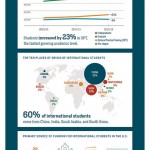WINSTON-SALEM, N.C. (AP) _ The 93-year-old lead plaintiff in a lawsuit challenging North Carolina’s new voting restrictions recounted in federal court Tuesday how she was forced to take a literacy test as a young woman registering to vote.
The Winston-Salem Journal reported (http://bit.ly/1ohG6JU ) Rosanell Eaton testified in U.S. District Court that she was 19 when her mother and brother took her to the Franklin County courthouse to register to vote.
Eaton, who is black, said white men told her to stand up straight, with her hands by her side, and read the preamble of the U.S. Constitution. She did so successfully, becoming one of the first blacks eligible to vote in her home county.
Her testimony came a day after an attorney representing the NAACP drew parallels between the plaintiffs’ concerns over voting rights now and similar battles waged nearly 50 years ago during the civil rights era.
Lawyers for the U.S. Justice Department and an array of civic groups say the Republican-backed measures at issue in the lawsuit were designed to suppress turnout among minorities, the elderly and college students _ blocs that generally vote Democratic. They are asking a federal judge to put implementation of the law on hold until after the November election. A trial in the case is scheduled for next year.
The new law makes more than two dozen changes, including requiring voters to present a photo ID, ending same-day registration, trimming the early voting period by a week, and ending a popular high school civics program that encouraged students to register to vote in advance of their 18th birthdays.
Before the Voting Rights Act of 1965, North Carolina and other states used poll taxes and literacy tests, such as forcing blacks to read the preamble of the U.S. Constitution, to keep blacks from voting. Last year, the U.S. Supreme Court decided 5-to-4 to strike down a key provision of the landmark act that required states and counties with histories of racial discrimination from making voting changes with prior approval from Washington.
Eaton testified she has been a member of the NAACP for the last 65 years and spent her life working to register people to vote. She said many blacks were afraid to register. Some worked in sharecropping and were afraid of retribution from their landlords, she said.
Eaton said that early voting is important because it gave people time to vote, especially for those who lacked transportation.
“I just feel voting should be free and accessible to everyone,” she said.











